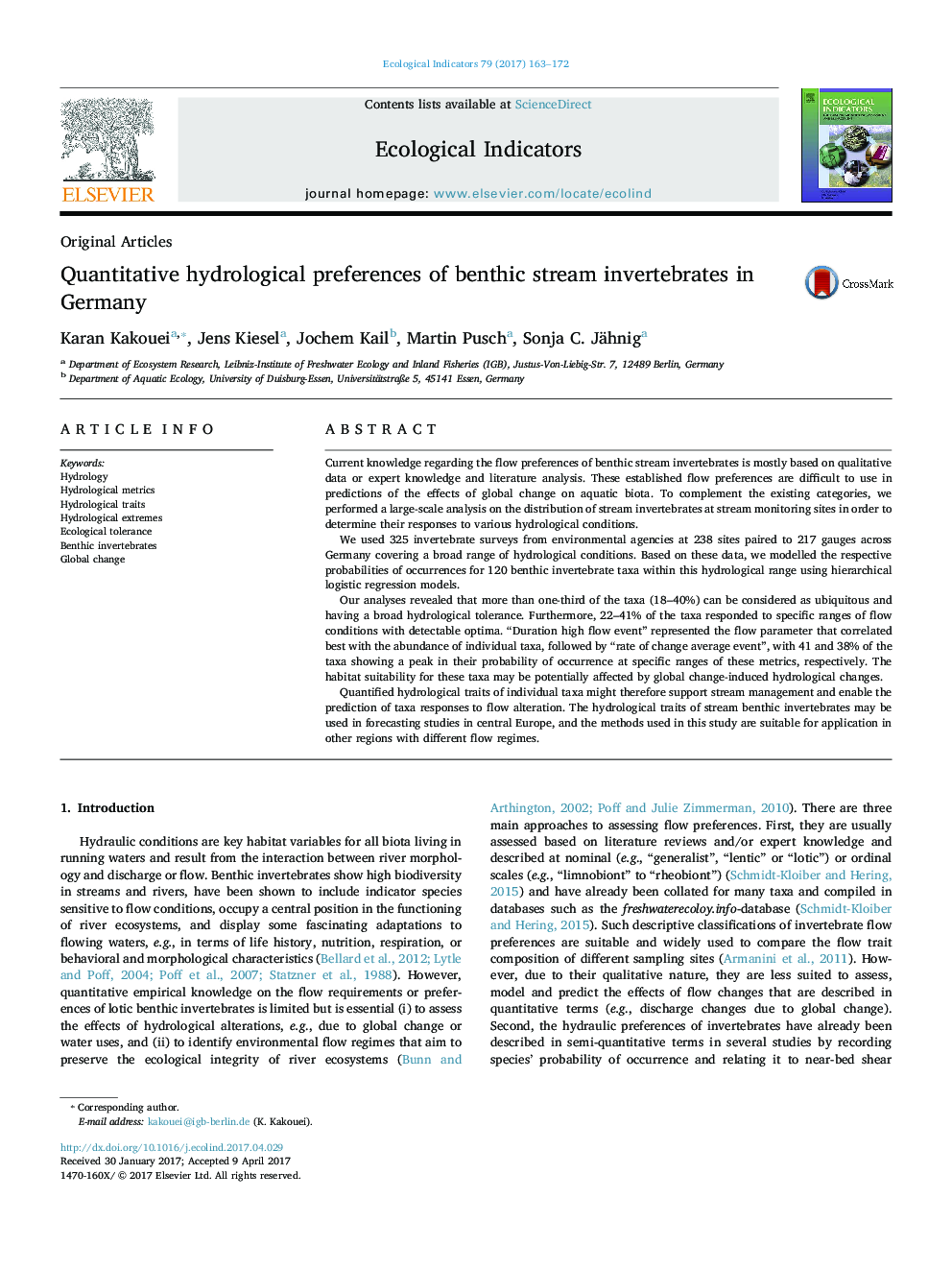| Article ID | Journal | Published Year | Pages | File Type |
|---|---|---|---|---|
| 5741764 | Ecological Indicators | 2017 | 10 Pages |
Current knowledge regarding the flow preferences of benthic stream invertebrates is mostly based on qualitative data or expert knowledge and literature analysis. These established flow preferences are difficult to use in predictions of the effects of global change on aquatic biota. To complement the existing categories, we performed a large-scale analysis on the distribution of stream invertebrates at stream monitoring sites in order to determine their responses to various hydrological conditions.We used 325 invertebrate surveys from environmental agencies at 238 sites paired to 217 gauges across Germany covering a broad range of hydrological conditions. Based on these data, we modelled the respective probabilities of occurrences for 120 benthic invertebrate taxa within this hydrological range using hierarchical logistic regression models.Our analyses revealed that more than one-third of the taxa (18-40%) can be considered as ubiquitous and having a broad hydrological tolerance. Furthermore, 22-41% of the taxa responded to specific ranges of flow conditions with detectable optima. “Duration high flow event” represented the flow parameter that correlated best with the abundance of individual taxa, followed by “rate of change average event”, with 41 and 38% of the taxa showing a peak in their probability of occurrence at specific ranges of these metrics, respectively. The habitat suitability for these taxa may be potentially affected by global change-induced hydrological changes.Quantified hydrological traits of individual taxa might therefore support stream management and enable the prediction of taxa responses to flow alteration. The hydrological traits of stream benthic invertebrates may be used in forecasting studies in central Europe, and the methods used in this study are suitable for application in other regions with different flow regimes.
